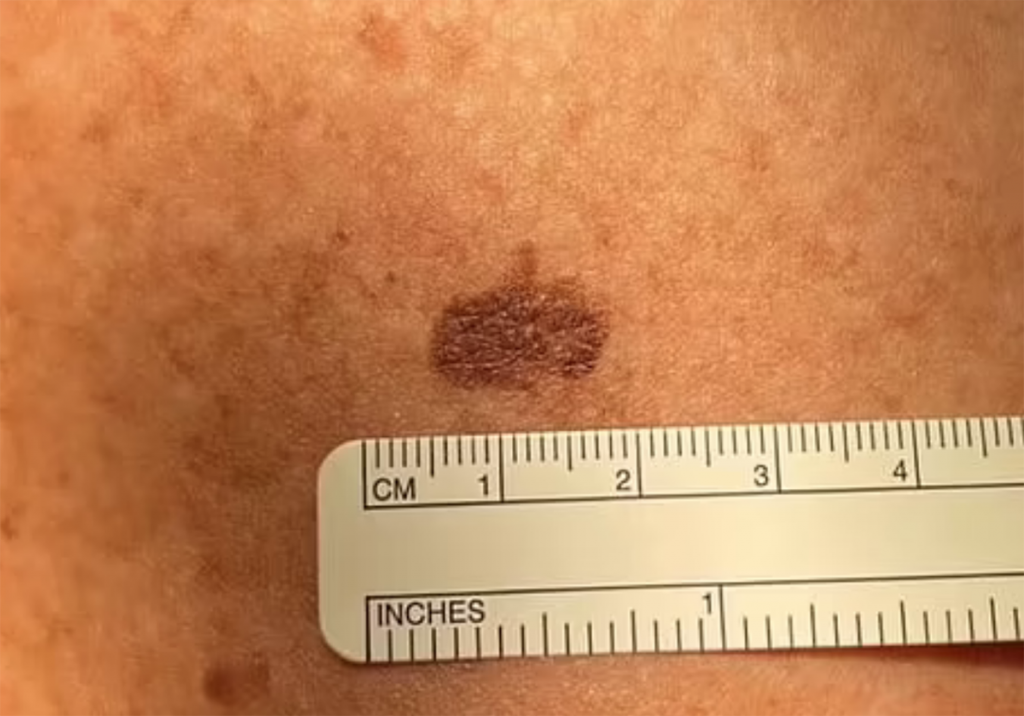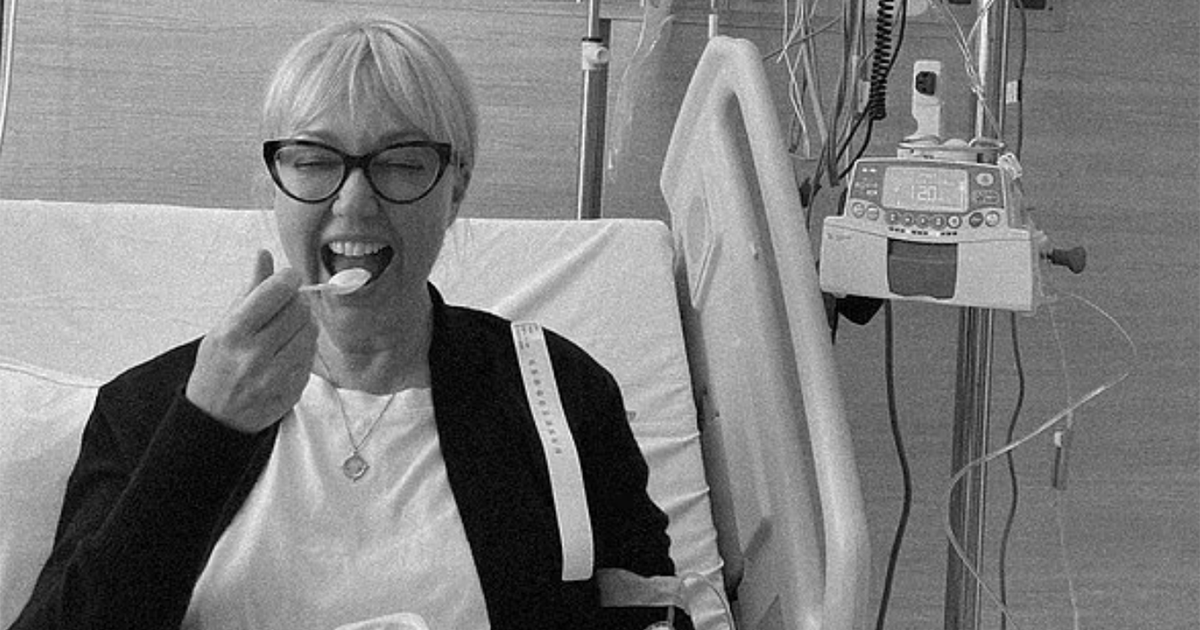Remember to Wear Your Sunscreen
- Shelley Devine, a 52-year-old mother from Australia's Sunshine Coast who was recently diagnosed with stage 4 melanoma, is using her story to promote the importance of sunscreen.
- Melanoma is a skin cancer that starts in the cells that give your skin, hair and eyes their color. This type of skin cancer tends to spread to other parts of the body, like in Devine’s case.
- To prevent melanoma, it is recommended that you regularly use sunscreen. Use no less than SPF 30 and reapply it every two hours when outside in the sun.
"I used to just wear sun cream on my face, mostly because I am vain, but would never put it anywhere else," Shelley Devine told the Daily Mail about her excessive tanning while in her 20s and 30s. "Now, I wear T-shirts as a minimum, always have a hat on and put sunscreen on my whole body every time I go outside."
Read More
But her doctor said it was just a "harmless paint splatter," she told the Daily Mail.
Further tests revealed she had melanoma, and it was in its later stages and had spread to her lungs and liver.

"It showed every sign of being melanoma and it was dismissed by my GP (general practitioner)," Devine said.
"(When I was younger), I always thought, 'How can it (melanoma) kill you? It is on your skin you get it cut off and away you go,'" she added. "I didn't understand how fast it can spread through your bloodstream to your organs."
Devine is now going through treatment, and told the Daily Mail she feels at about 80% because of her immunotherapy drugs. (The type of drugs Devine is taking to treat her melanoma have not been specified.)
She's now sharing her story to promote the importance of wearing sunscreen and to encourage people to get their skin checked for cancer every 12 months.
"It is your choice to lie in the sun, to get a tan, but I think after seeing someone like me go through this you would be crazy not to change your ways," she said.

Understanding Melanoma
Melanoma is a skin cancer that starts in the cells that give your skin, hair and eyes their color.
"Melanomas are the deadliest type of skin cancer because they have a tendency to spread to other parts of the body," Dr. Anna Pavlick, an oncologist at Weill Cornell Medicine, previously told SurvivorNet.
There is No ‘Cookie Cutter Recipe’ for Treating Stage Four Melanoma
Melanoma can develop from an existing mole, like in Devine's case, or appear as a dark or pink growth on the skin, even on, or in, parts of the body that never see the sun.
Paying attention to moles or growths on your skin is an easy way to keep an eye out for melanoma the same message Devine is promoting. Discovering changes to an existing mole or a new growth on your skin can be signs of this cancer, according to SurvivorNet experts. Spots on your skin can be harmless, but it is important to monitor them and contact your doctor if you find cause for concern. Using sunscreen regularly can also lower your risk of developing melanoma.
Remember to Wear Your Sunscreen
Many people slather on sunscreen every day, but if you're not choosing the right type or not using enough, it may not be working.
Dr. Cecilia Larocca, a dermatologist at the Dana-Farber Cancer Institute, previously told SurvivorNet it is recommended that you use no less than SPF 30 and reapply it regularly. The sunscreen should also be broad spectrum, Dr. Larocca added, meaning it covers both UVB and UVA rays.
Choose the Right Sunscreen and Use it Often
According to Dr. Larocca, people usually only get about 50% of the SPF on the label. So, if you're using SPF 60, you're really getting closer to 30 SPF of protection. To make sure you're getting the right protection, she also recommends using sunscreen every two hours and wearing protective clothing, such as a hat and sunglasses.
According to the National Comprehensive Cancer Network, you should:
- Avoid sun exposure during peak hours when the sun's rays are strongest: between 10 a.m. and 4 p.m.
- Apply sunscreen 15 minutes before going outside
- Use at least SPF 30 broad spectrum sunblock and reapply every two hours when outdoors
Contributing: SurvivorNet staff reports
Learn more about SurvivorNet's rigorous medical review process.


